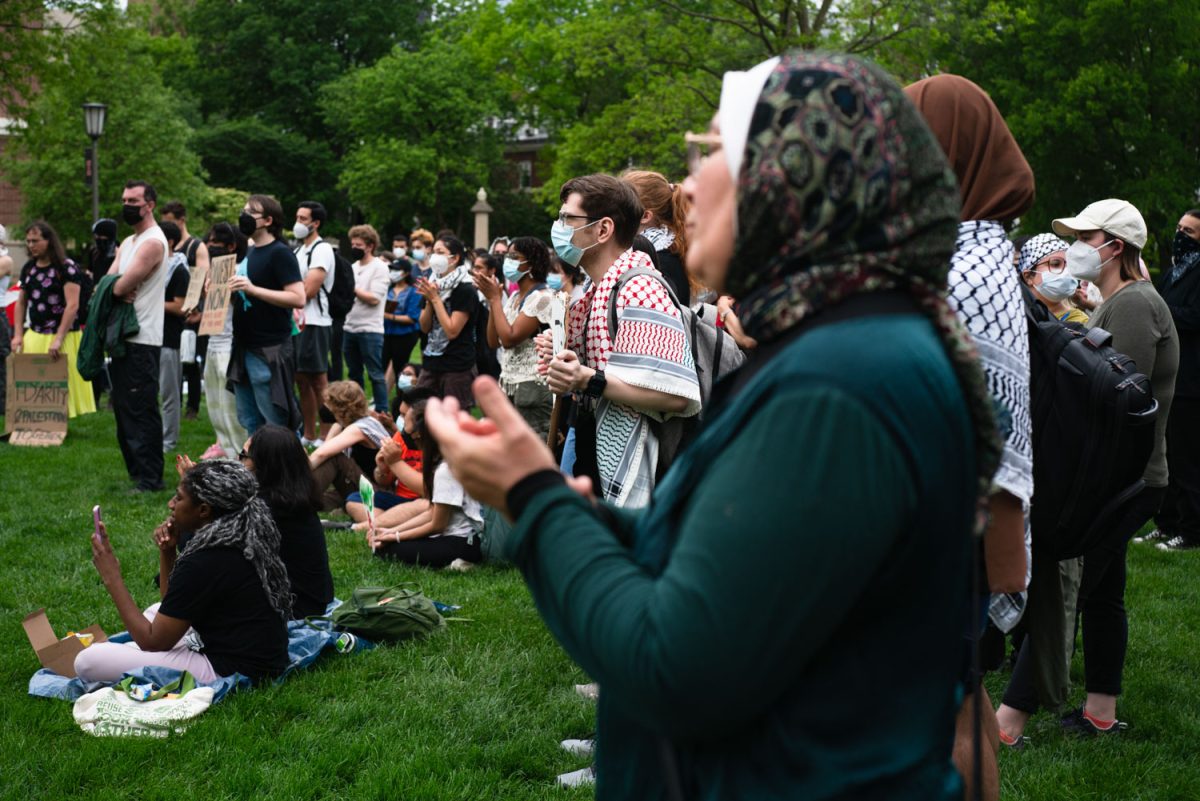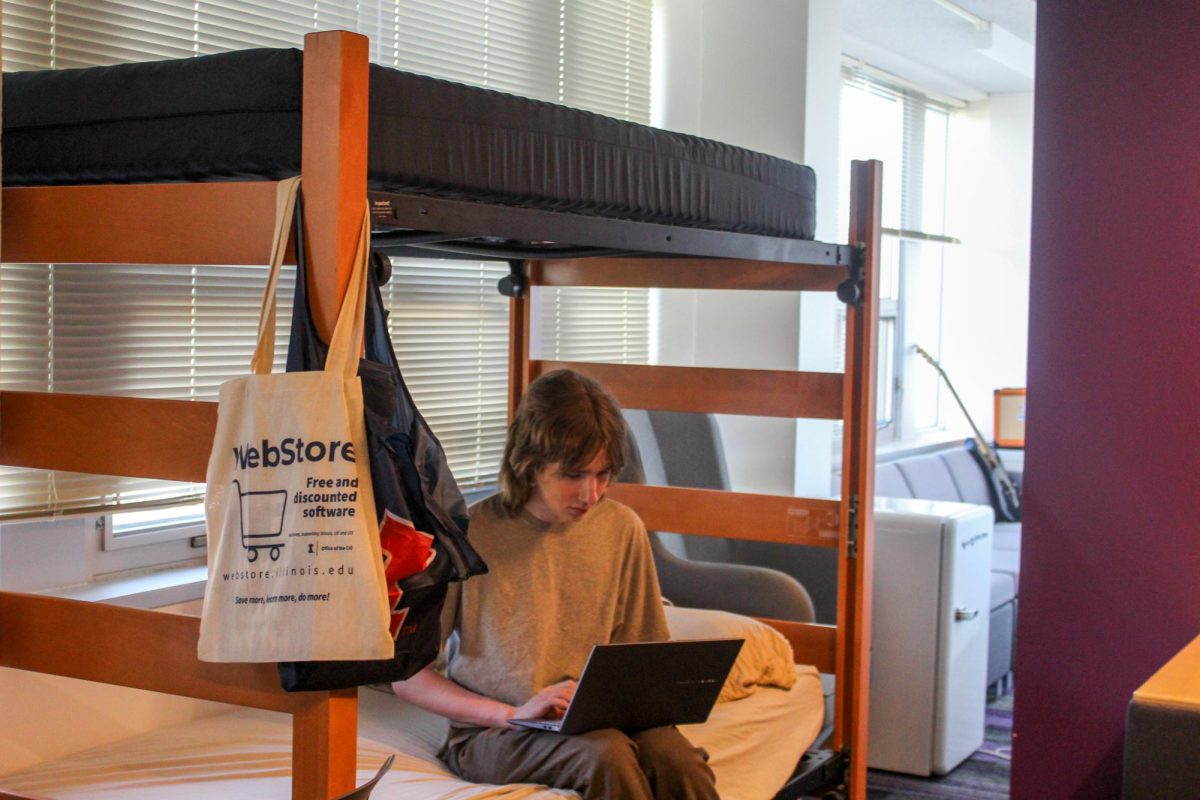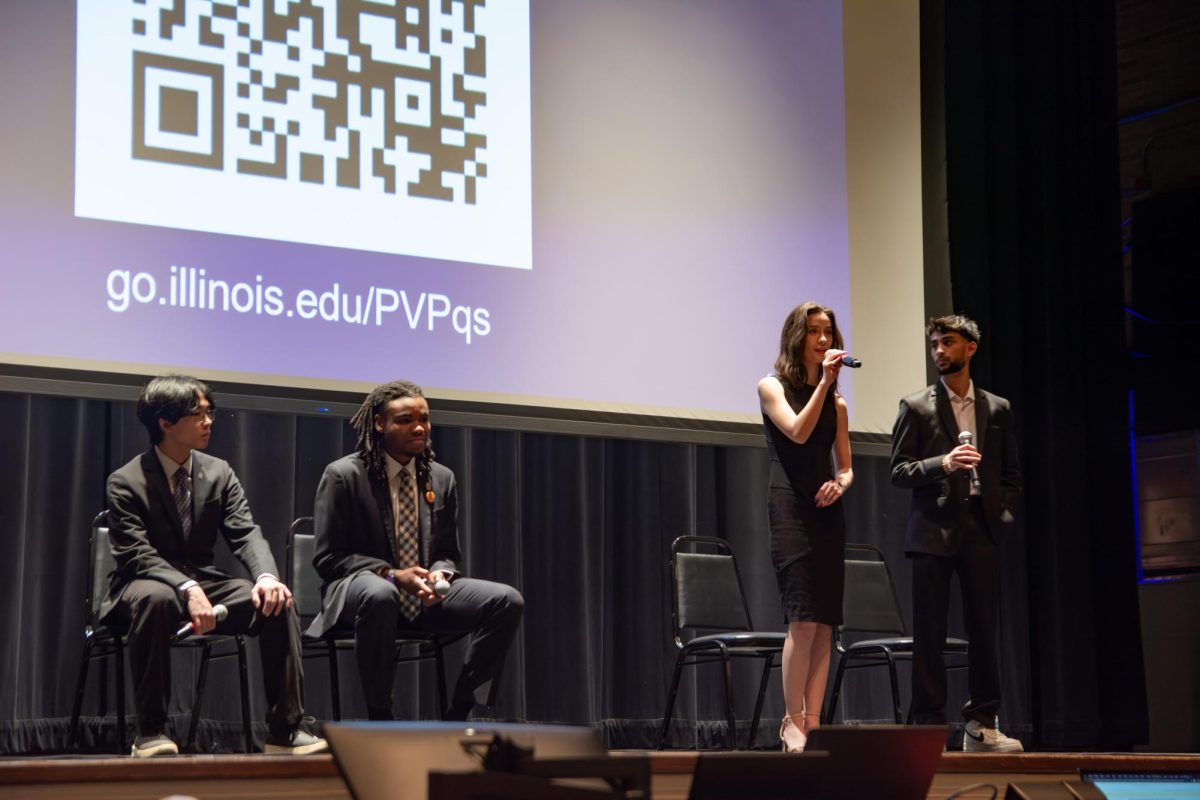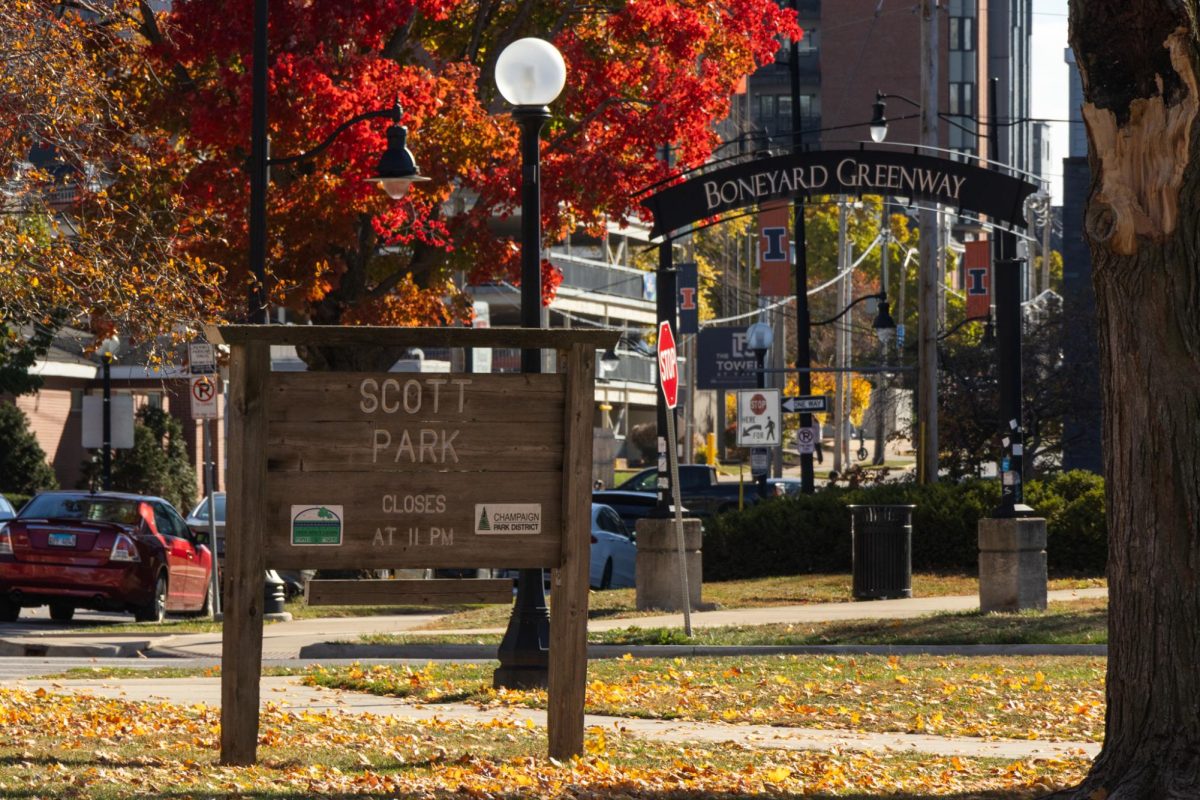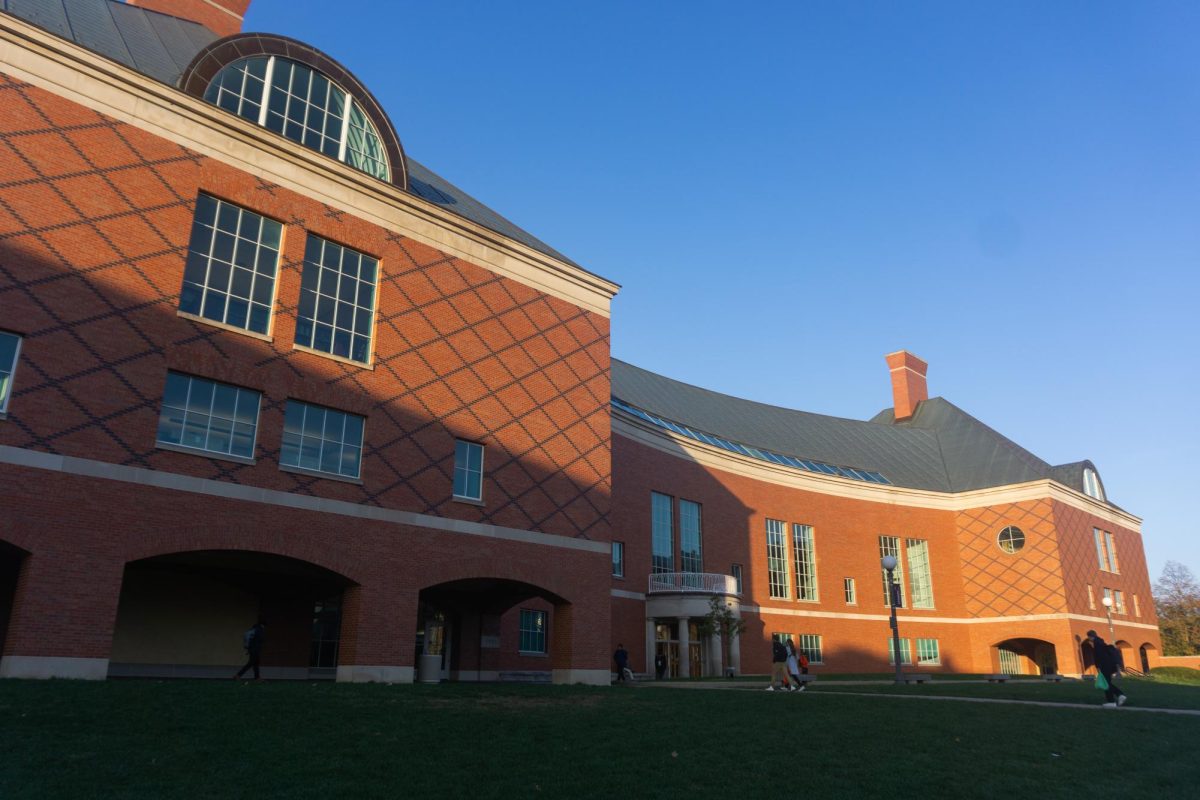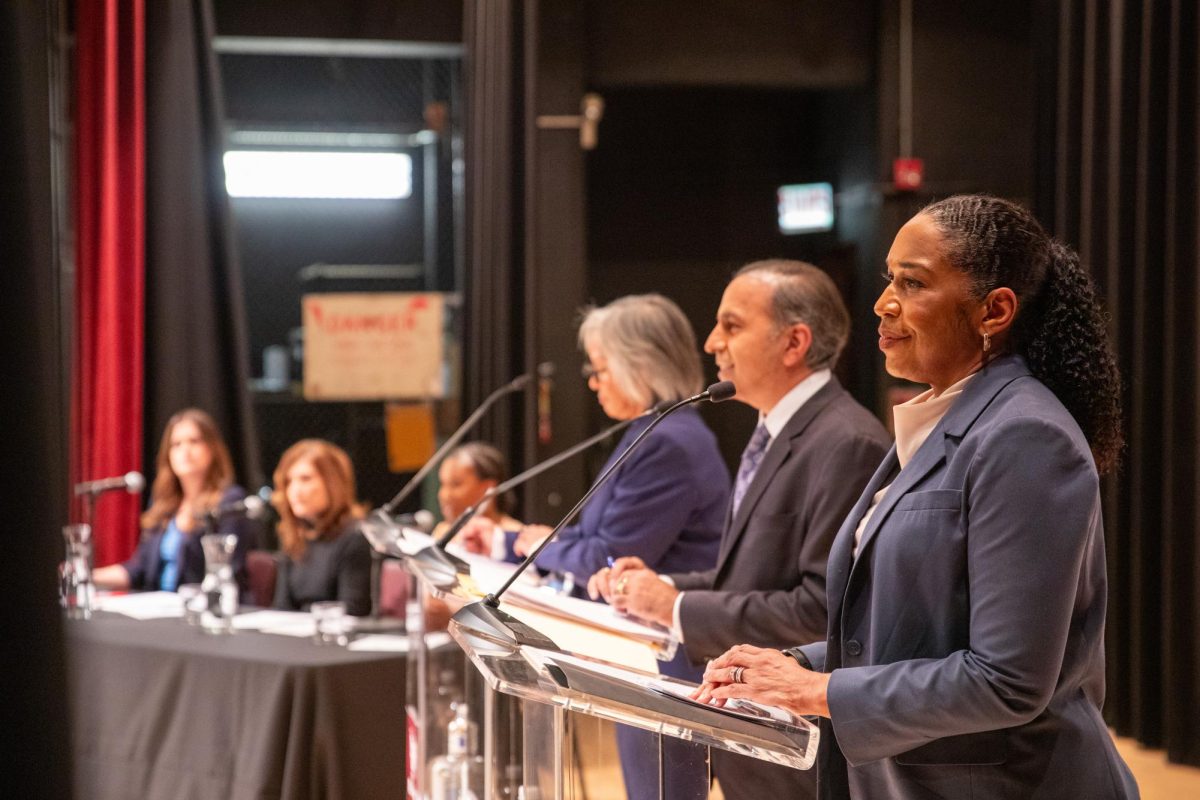Last updated on Sept. 21, 2024 at 07:21 p.m.
Representatives from the ongoing encampment on the south end of the Main Quad distributed a written statement to members of the press at around 5:16 p.m. Monday evening.
The statement, entitled “Students demand accountability from the University administration for their complicity in the genocide in Palestine and bad-faith negotiation tactics with protestors seeking divestment,” was four pages in length and gave a synopsis of the encampment beginning from its original establishment at the Alma Mater statue on Friday, April 26.
The statement also outlined, from the protesters’ perspective, a negotiation meeting held between members of the encampment and Chancellor Robert Jones on Saturday, May 4.
According to the statement, the encampment, which was referred to as “the Popular University for Gaza,” was not established at its proposed location near Spurlock Museum in Urbana due to the presence of a police surveillance vehicle, which was not outlined in their agreement with University administration.
Get The Daily Illini in your inbox!
The statement also outlined the negotiations that took place between the evenings of Friday, April 26 and Sunday, April 28. According to a Massmail sent to members of the University community Friday evening, members of the encampment were set to negotiate with the administration on Monday afternoon, but the meeting was later canceled.
According to an April 27 interview with a protest organizer, the University later refused to meet with encampment members without prior dismantling of all structures on the Main Quad.
Protesters alleged in the statement that University administration assured encampment members multiple times that their commitment to holding a meeting the following Monday “was not contingent upon the dispersal of ongoing protests” during negotiations for the “temporary agreement” reached on Friday.
“Administration repeatedly went back on their word while simultaneously trying to villainize students who were peacefully protesting,” the statement said. “(Administration sent) a Massmail on April 28, while negotiations were still ongoing, stating that the student negotiators had ‘refused’ to meet with President Killeen and Chancellor Jones.”
According to the statement, negotiations between protesters and the administration were nothing more than “performative acts on the administration’s behalf meant to thwart any progress that could have been made toward divestment.”
After several days of discussions with Associate Vice Chancellor Jim Hintz and other members of University administration, the protesters were ultimately able to secure a meeting with Chancellor Jones that did not require dismantling the encampment.
“Two stipulations remained: only those present during negotiations would be allowed to know about the meeting, and faculty representatives would not be allowed into the meeting as they had been previously,” the statement said. “This demand for confidentiality was a tactic to create unease and confusion across the camp and the larger Urbana-Champaign community.”
Following the death of Dr. Irfan Ahmad, assistant dean for research at Carle Illinois College of Medicine, Jones met with members of the encampment and was “welcoming” to the proposals brought forth by protesters.
According to the statement, Jones ultimately agreed to schedule a meeting on May 5 with James Moore, president and CEO of the University of Illinois Foundation where representatives from the encampment would “lay the foundation for an investment policy statement with a commitment to divest from companies that directly enable violations of international law and assaults on human rights.”
In the statement, organizers alleged that Jones arrived five minutes late to the scheduled 30-minute meeting and that he immediately informed protesters that the meeting was canceled.
The statement said Jones had “given the impression” that the meeting was for the purpose of negotiation, but that it was actually proposed in an effort to “(elevate) the lived experiences of the student organizers.”
Jones later told encampment representatives he would attempt one more time to schedule a meeting with President Tim Killeen, but also advised them that it was a “quality of good leaders to know how to deliver bad news to their constituents.”
Finally, the statement alleged that Jones “prioritized his own optics over the state of his campus, and his desire to not mirror the responses of UCLA and Columbia superseded his desire to create positive change.”



